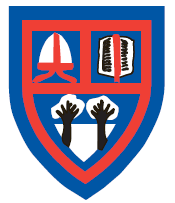Our Curriculum
Launde Primary School Curriculum
Please use the links to the right to see each individual subject's curriculum.
Our Approach to Teaching and Learning at Launde Primary School
At Launde Primary School, our vision is to 'Create Curious Minds, Kind Hearts and Bright Futures'. We believe that an exceptional education goes beyond academic achievement, nurturing the whole child and preparing them for a fulfilling life in a dynamic world.
Our Core Values & Curriculum Drivers
Our teaching and learning approach is built upon our recently developed core values and curriculum drivers. These guiding principles inform all aspects of our teaching practices.
Our Core Values:
- Kindness: We show kindness to each other at all times.
- Respect: We treat others kindly, value differences, and listen to everyone's ideas and opinions.
- Resilience: We embrace mistakes as learning opportunities and stay positive in difficult situations.
- Confidence: We show confidence in being ourselves, speaking up, trying new things, and handling adversity.
- Curiosity: We are excited about our learning and eager to explore new ideas.
Our Curriculum Drivers:
These drivers are intrinsically linked to our core values:
- Critical Thinkers: Our curriculum helps children to actively identify real-world problems, apply their knowledge and skills across contexts, and explore learning through hands-on experiences. We equip them to make sense of complex ideas, solve problems creatively, make smart choices, and spot false information.
- Safe and Well: We believe fostering pupils' safety and well-being is fundamental. This includes promoting emotional literacy, developing healthy relationships, fostering physical health, and building self-awareness and self-care strategies.
- Global Citizens: We prepare our pupils to understand their potential for contribution and impact beyond their immediate experiences. This involves embracing diversity, enhancing cultural awareness, understanding global challenges, and contributing positively to the world.
- Inspired Learners: We want our children to enjoy their learning and be inspired by new knowledge. This driver aims to ignite a passion for learning, encourage genuine interest, develop a growth mindset, and foster creativity and innovation.
Our curriculum and school ethos support the teaching of:
The protected characteristics
Age, disability, gender, marriage, pregnancy and maternity, race, sex, religion and belief and sexual orientation.
British Values
Democracy, rule of law, respect and tolerance and individual liberty.
Healthy Lifestyles
Promoting the value of physical, emotional and mental health and how to nurture them. Developing children's understanding of healthy relationships and how to cultivate them.
At Launde Primary School, we prioritise creating a safe and nurturing environment where children can thrive. Our commitment to pastoral care ensures every child's individual needs are met. We weave safety education throughout our curriculum, empowering pupils with the knowledge to stay safe in various situations. Additionally, we emphasise the importance of healthy relationships, fostering a positive school community where everyone feels respected and supported.
Curriculum Design
Our chosen curriculum drivers – Critical Thinkers, Safe and Well, Global Citizens, and Inspired Learners – are intrinsically linked to our core values of Kindness, Respect, Resilience, Confidence, and Curiosity. These drivers are not merely aspirational statements; they are the guiding principles that inform every aspect of our pedagogical practice.
To ensure a robust and coherent educational journey for all pupils, we strategically employ well-regarded schemes of work such as Kapow and those provided by United Learning. We've chosen these frameworks precisely because they offer a sequenced and progressive approach to knowledge and skills acquisition, providing a clear roadmap for learning across all subjects and year groups. This intentional structuring guarantees that learning builds logically, allowing pupils to deepen their understanding and develop complex competencies over time. Importantly, these curriculums link seamlessly with our well-designed Early Years Foundation Stage (EYFS) curriculum, which champions a love of learning and a development of the fundamental skills essential for successful Key Stage 1 learning.
While these schemes provide an excellent foundation, we firmly believe that a truly effective curriculum must be responsive to the specific needs and vibrant cultural landscape of our school community. Therefore, we are committed to actively adapting and personalising these schemes to meet the unique needs of our pupils. This bespoke approach ensures that while our curriculum is underpinned by strong, proven frameworks, it remains highly relevant, engaging and impactful for every individual learner.
These adaptations have included and will continue to include:
- Localising content by ensuring that examples, case studies, and contexts resonate with our multi-cultural demographic and local environment.
- Adapting instruction by tailoring learning experiences to cater to the diverse learning styles, prior knowledge, and interests of our varied pupil body.
- Integrating cultural perspectives by weaving in diverse cultural narratives and contributions to reflect our multi-cultural community and enrich our global citizenship driver.
- Responding to emerging needs by remaining flexible in our curriculum design to address current events, pupil interests and any specific well-being or academic requirements that arise within our school.
Examples of the schemes that we utilise include:
- Art: Kapow scheme, focusing on practical skills, exploration, and celebrating diverse artists.
- Computing: Teach Computing curriculum supplemented with Project Evolve for e-safety, covering themes like computer systems, programming, and online safety.
- Design and Technology (DT): Kapow scheme, preparing children to be critical thinkers through hands-on experiences and skill development.
- Geography: Kapow scheme, a spiral curriculum revisiting essential knowledge and skills with increasing complexity, including fieldwork.
- History: Kapow scheme, with adjustments for local history, fostering critical thinking and exploring disciplinary and substantive concepts.
- Modern Foreign Languages (MFL): Kapow's Spanish scheme for Key Stage Two, focusing on communication, key skills, grammar, and vocabulary.
- Physical Education (PE): Primary PE Planning units, ensuring progression in motor competence, healthy participation, and rules/strategies.
- Reading: Daily whole-class reading lessons focusing on fluency and key National Curriculum skills like vocabulary, inference, and retrieval.
- Religious Education (RE): Adapted from the Leicestershire agreed syllabus, taught in line with our school values of respect and kindness, and fostering global citizenship.
- Music: The Leicestershire-approved scheme primarily focusses on developing key musical skills such as performing (singing and playing instruments), listening and appraising, composing, understanding the history of music, and exploring the inter-related dimensions of music (pitch, duration, dynamics, tempo, timbre, texture, structure, and notation).
- Writing: Our daily whole-class writing sessions use a 7-stage process to systematically build children's writing skills. This process, which moves from sharing and exploring to publishing and celebrating, ensures a clear, gradual development of writing proficiency.
-
- Sharing and Exploring
- Analysing and Identifying
- Developing and Demonstrating
- Planning and Organising
- Drafting and Writing
- Evaluating and Revising
- Publishing and Celebrating
-
- Maths: The Power Maths scheme, a whole-class mastery programme, focusses on developing children's deep conceptual understanding of mathematical concepts, fluency in number facts and calculations, and proficiency in reasoning and problem-solving, often through a Concrete-Pictorial-Abstract (CPA) approach and a growth mindset philosophy.
To find out more about an individual subject's curriculum, please use the links on the right.
Curriculum Implementation
Whilst each subject has its own principles for consistent implementation in classrooms, we have worked hard to develop and embed a teaching sequence to allow children to practise, apply and remember their learning.

Supporting All Learners
We are dedicated to ensuring all pupils thrive:
- Pupil Premium Children: We prioritise immediate and targeted support, including additional instruction, scaffolding, and pre-teaching new knowledge. They are prioritised for in-school tuition and their progress is closely monitored at all pupil progress meetings.
- SEND: For children with Special Educational Needs, an adapted curriculum is provided to secure foundational knowledge and address gaps. They participate in whole-class input, followed by adapted activities and gradually removed scaffolding to foster independent learning.
- Adaptive Teaching Strategies and Scaffolding: Teachers make changes to instruction to meet the needs of all learners, not just those with SEND or EAL. Scaffolding is temporary support, applied as needed and removed when no longer required.
By nurturing Critical Thinkers, Safe and Well individuals, Global Citizens, and Inspired Learners, we are dedicated to providing every pupil at Launde with an empowering educational experience that enables them to thrive, lead fulfilling lives and make a positive impact on the world.

